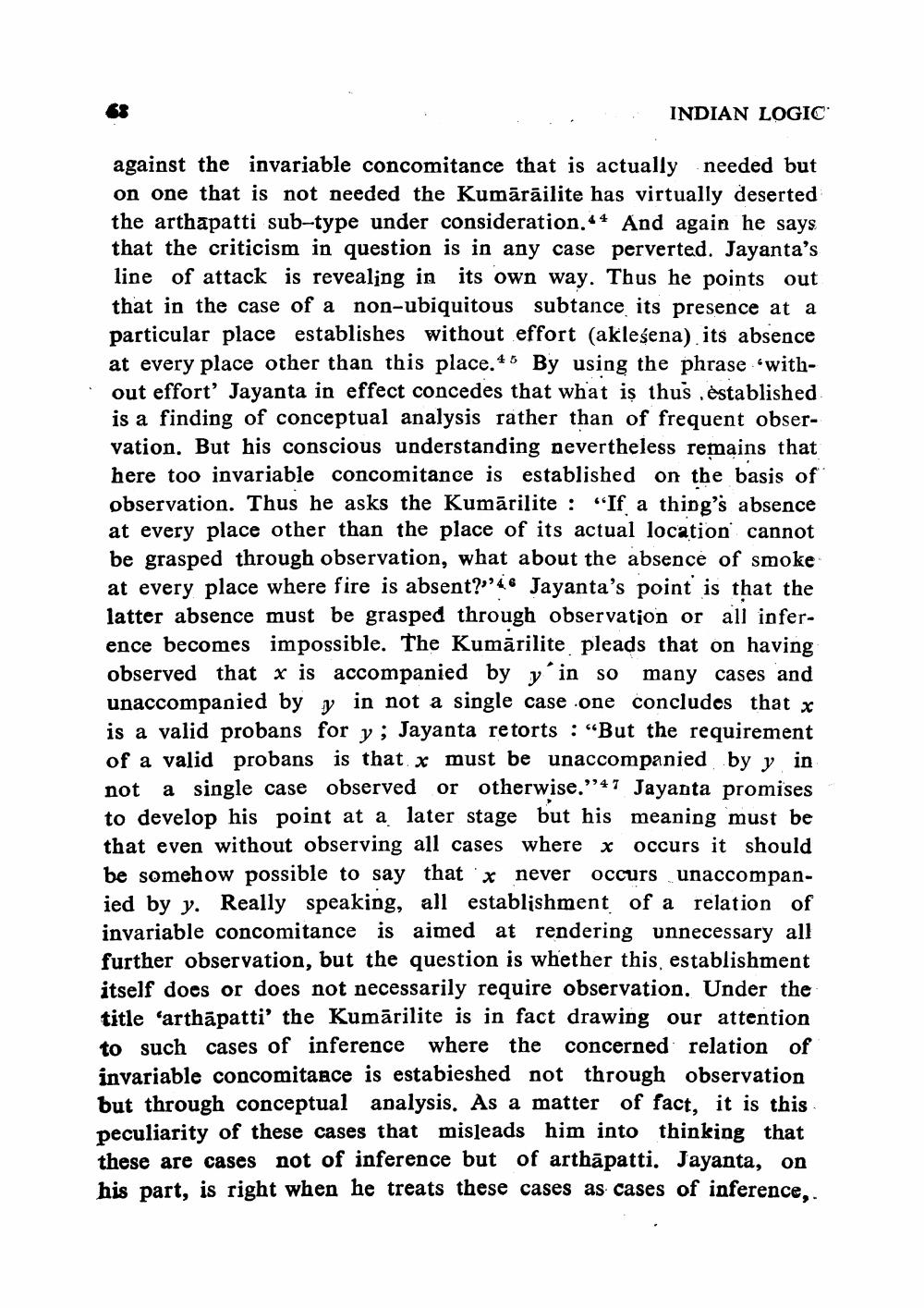________________
INDIAN LOGIC
against the invariable concomitance that is actually needed but on one that is not needed the Kumārāilite has virtually deserted the arthapatti sub-type under consideration. 44 And again he says that the criticism in question is in any case perverted. Jayanta's line of attack is revealing in its own way. Thus he points out that in the case of a non-ubiquitous subtance its presence at a particular place establishes without effort (aklesena) its absence at every place other than this place. 45 By using the phrase-without effort' Jayanta in effect concedes that what is thus established is a finding of conceptual analysis rather than of frequent observation. But his conscious understanding nevertheless remains that here too invariable concomitance is established on the basis of observation. Thus he asks the Kumārilite : "If a thing's absence at every place other than the place of its actual location cannot be grasped through observation, what about the absence of smoke at every place where fire is absent?»?46 Jayanta's point is that the latter absence must be grasped through observation or all inference becomes impossible. The Kumārilite pleads that on having observed that x is accompanied by y'in so many cases and unaccompanied by y in not a single case .one concludes that x is a valid probans for y; Jayanta retorts: "But the requirement of a valid probans is that x must be unaccompanied by y in not a single case observed or otherwise."'47 Jayanta promises to develop his point at a later stage but his meaning must be that even without observing all cases where x occurs it should be somehow possible to say that 'm never occurs unaccompanied by y. Really speaking, all establishment of a relation of invariable concomitance is aimed at rendering unnecessary all further observation, but the question is whether this, establishment itself does or does not necessarily require observation. Under the title “arthāpatti' the Kumārilite is in fact drawing our attention to such cases of inference where the concerned relation of invariable concomitance is estabieshed not through observation but through conceptual analysis. As a matter of fact, it is this peculiarity of these cases that misleads him into thinking that these are cases not of inference but of arthāpatti, Jayanta, on his part, is right when he treats these cases as cases of inference,




